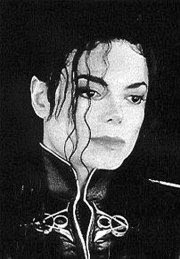 And we're back.
And we're back.Last night I unveiled albums 15 through 11, and although those are some pretty great records, now we're getting into the good stuff. Albums 10 through 6 are amazing, encompassing everything from Post-Hardcore to Metalcore, Thrash Metal and even some Nu-Metal too.
So let's get right into it. And remember, this is still just an appetizer.
Stay tuned for albums 5 through numero uno tomorrow!

10. Gallows “Grey Britain”
Yeah, I know what you’re thinking. Too soon, right? Well you’re dead fucking wrong. There may have been better hard rock/metal albums released this decade, but nobody’s kicked ass like Gallows have with their sophomore effort, Grey Britain. Opening track “The Riverbank” is the best opening track of any album this year, with its haunting opening string arrangement exploding into a truly epic catharsis. In a decade dominated by Green Day, My Chemical Romance and Fallout Boy, Gallows is a breath of dank, oppressive heat (and I mean that in the best possible way), skewering the violence, drug abuse, and apathy that is rampant in the youth culture of their home country, while finding the perfect balance between Black Flag-inspired hardcore and Sabbath-drenched heavy metal brutality. This is essential!

9. Lamb of God “Ashes of the Wake”
No true metal fan, young or old, that was alive during the 2000s hasn’t heard Lamb of God’s fourth album, 2004’s Ashes of the Wake. It’s one of those albums, and Lamb of God is one of those bands, that simply cannot be denied by anyone that calls themselves a fan of heavy music. This is music that absolutely pulverizes you from start to finish. “Laid to Rest” is a stone cold classic, opening almost coyly with stuttering double bass and lead vocalist Randy Blythe’s iconic spoken word opening salvo, “If there was a single day I could live…” before the song completely flies off the handle, and never lets up. By the time the truly psychotic bridge explodes, it becomes quite clear that this is a band at the very top of their game. Ashes of the Wake has no weak moments and absolutely no filler. Machine gun double bass pummels, truly vicious guitar riffs terrorize, and Blythe’s vocals sound so unabashedly evil that he makes Tom Araya sound like a fucking Teletubby.

8. Metallica “Death Magnetic”
To this day Metallica’s 8th album, “St. Anger,” is still the most bizarre collection of songs I have ever heard in my entire life. Metal fans around the world are still dumbstruck by the sloppiness, absurdity, and downright silliness of that album (remember “Invisible Kid”?). Almost as surprising as the epic fail that was St. Anger is the epic triumph that is Death Magnetic. Who could have predicted that after over ten years of churning out disappointing album after disappointing album, the greatest metal band of all time would finally reclaim their throne? Death Magnetic sounds like the missing link between “…And Justice for All” and the Black Album, shedding all those annoying Southern Rock/Nu-metal pretensions that bogged them down throughout the 90s and early 2000s, and revealing a band that can still pound you into submission with pure, unadulterated METAL. “That Was Just Your Life” has a chorus (and an amazing solo by the great Kirk Hammett) that shreds with reckless abandon, and “Suicide and Redemption” sees Metallica finally bestowing upon us another one of their incredible instrumentals. But it’s the old-school Speed Metal rampage that is “My Apocalypse” that dispels any doubt as to whether or not these guys still got it. Um…they do. Bow Down!

7. Glassjaw “Worship and Tribute”
Glassjaw took the post-hardcore genre to another level with their first album, “Everything You Ever Wanted to Know About Silence.” But 2002’s “Worship and Tribute” is where they truly perfected their sound, combining everything from Jazz and Thrash Metal to Psychedelic Rock and Funk, shaking it all up, and letting it explode into something messy and precise, grotesque and beautiful. Choice cuts like “Cosmopolitan Bloodloss” and the incredible “Tip Your Bartender” feature verses with chaotic, jagged riffs and pummeling double bass that give way to soaring, gorgeous choruses, at times careening out of control and nearly imploding on themselves. “Ape Dos Mil,” “Must’ve Rained All Day,” and “Radio Cambodia” are stand outs for their melodic, pop sensibilities, showcasing lead singer Daryl Palumbo’s emotive vocal style. But the highlight is “Pink Roses,” a harrowing glimpse into the heart of alcoholism and depression, matched perfectly by the most freewheeling, cacophonous arrangement on the entire album.

6. Slipknot “Iowa”
Slipknot’s self-titled debut album catapulted them into the spotlight in 1999, attracting legions of followers (lovingly referred to as “maggots”), tons of controversy, and a whole heap of inner-band turmoil. In interviews members of the band have referred to this period as the absolute darkest in the 9-man crew’s history. Released in August of 2001, “Iowa” is the product of this period…and it shows. Iowa is quite possibly the darkest, most unrelenting metal album released this decade. Other albums may have been “heavier,” but nothing sounds quite like Iowa. The music is violent, surly, and about as forgiving as an 18 wheeler barreling head-on at your Honda Civic. Lead singer Corey Taylor spews pure venom throughout, declaring that “people equal shit,” railing against religious zealots, and describing psychosis and an utter loathing of life in general in brutal detail. It’s probably the most misanthropic album ever made, and it kicks fucking ass. Slipknot’s famous wall of sound was never this oppressive and cruel on their first album, and hasn’t been since. Iowa is the sonic equivalent of a Rob Zombie movie; malevolent, obscene, more than a little absurd, and absent of even the faintest glimmer of light. Great stuff.















